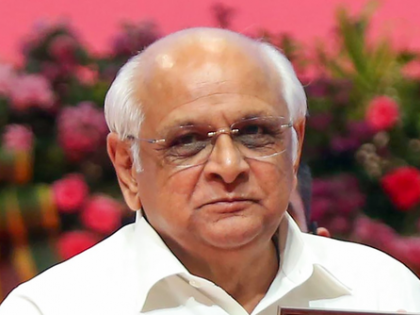Gujarat to integrate 127 Sardar Sarovar resettlement colonies with native villages
By IANS | Updated: July 14, 2025 16:59 IST2025-07-14T16:51:53+5:302025-07-14T16:59:11+5:30
Ahmedabad, July 14 The Gujarat government has finalised the rules to integrate and transfer resettlement colonies under the ...

Gujarat to integrate 127 Sardar Sarovar resettlement colonies with native villages
Ahmedabad, July 14 The Gujarat government has finalised the rules to integrate and transfer resettlement colonies under the Sardar Sarovar Rehabilitation Agency to their original villages.
Chief Minister Bhupendra Patel has approved the operational framework that will formally bring 127 Narmada resettlement colonies under the administrative jurisdiction of local gram panchayats.
This decision will benefit villages across eight districts and 26 talukas, including Ahmedabad (rural), Vadodara, Bharuch, Kheda, Panchmahal, Narmada, Chhota Udepur, and Mahisagar. Once integrated, the gram panchayats will be responsible for maintaining key civic services in these colonies, including drinking water supply, road infrastructure, street lighting, electricity billing, drainage systems, and general public utilities.
The state’s Department of Panchayat, Rural Housing and Rural Development, which prepared the methodology, stated that gram panchayats will also oversee repairs and upkeep of these facilities moving forward. The handover process is expected to be completed within the next two months.
With this, residents of the colonies will gain direct access to government schemes offered through local panchayats and will become full civic participants, thereby improving their standard of living and access to essential services.
Importantly, while the integration process will hand over civic responsibilities to the panchayats, ownership of unallocated plots within the colonies will remain with the Sardar Sarovar Rehabilitation Agency.
Furthermore, all records related to the colonies must be transferred to the respective gram panchayats. The agency will also hand over the administration of schools, health centres, and anganwadis to the concerned government departments. Community spaces and open plots can now be used by panchayats for the development of public amenities.
In addition, the gram panchayats will be responsible for property assessment and collection of local taxes as per the Gujarat Panchayat Act, 1993.
Post-transfer, panchayats will also be accountable for addressing any complaints related to civic services within the colonies. The state government clarified that these rules will also apply to any remaining Sardar Sarovar resettlement colonies that are merged into nearby gram panchayats in the future.
A formal resolution regarding this policy has been issued by the Department of Panchayat, Rural Housing, and Rural Development under the guidance of Chief Minister Bhupendra Patel.
--IANS
janvi/dan
Disclaimer: This post has been auto-published from an agency feed without any modifications to the text and has not been reviewed by an editor
Open in app